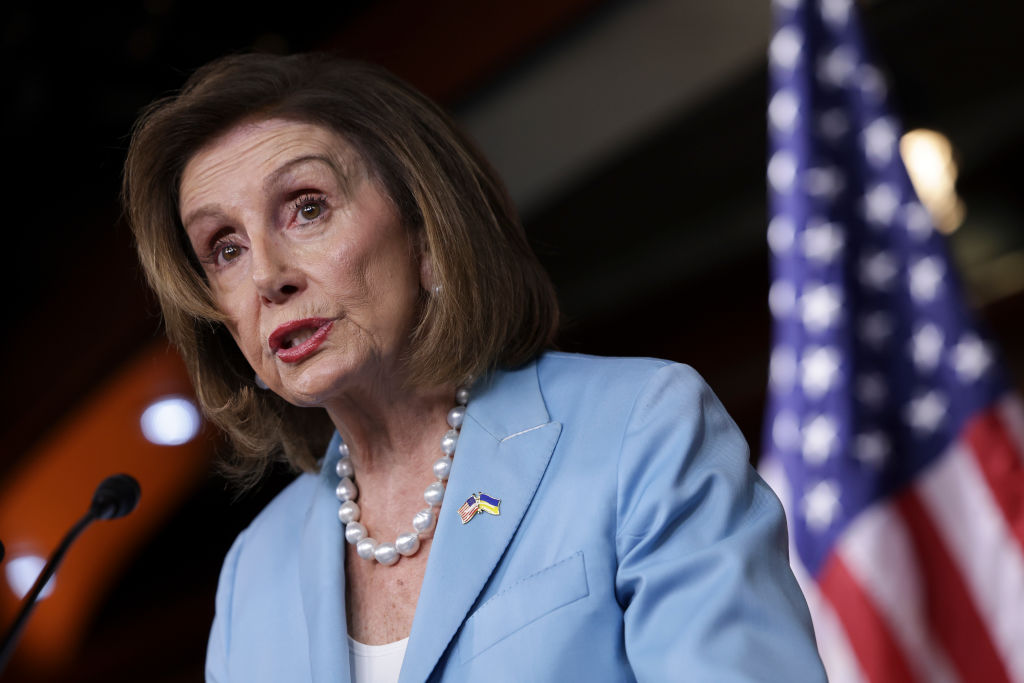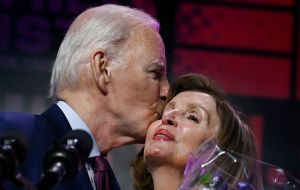Congress on Thursday approved a bill that gives the White House power to enact price controls on gasoline. The Consumer Fuel Price Gouging Prevention Act lets the Federal Trade Commission treat so-called price gouging as a deceptive trade practice. Congress specifically directs the FTC to prioritize cases “concerning companies with total United States wholesale or retail sales of consumer fuels in excess of $500,000,000 per year.”
In other words, all the major suppliers of oil and gas to the United States.
“This is a major exploitation of the consumer, because this is a product the consumer must have,” droned House Speaker Nancy Pelosi, whose love of fuel price gouging legislation dates to 2005.
What Pelosi just did is a repeat of the 1970s when Congress gave the White House the power to enact gas rationing. Time magazine declared in 1974 that happiness was “a full tank” as Americans tried to make sure they had enough fuel amid shortages and gas lines. President Jimmy Carter gave his “moral equivalent of war” speech in 1979, saying that the US was running out of fuel and that sacrifices were necessary even if it “will lead to some higher costs, and to some greater inconveniences for everyone.” Yet rationing ultimately stifled the economy even further as independent gas stations went out of business because they had no product. The failed policy didn’t end until 1981.
Fast forward to today and it can feel like a 70s rerun with high inflation driving up prices. And sure enough, policymakers appear hellbent on repeating past mistakes. “All of this stems from honestly a profound misunderstanding of what inflation is about,” said Dr. Veronique de Rugy, a Mercatus Center senior fellow. “They’re still high on the narrative pushed by the Federal Reserve that the inflation was the product of supply constraints. And it’s not!”
De Rugy blames Federal Reserve chairman Jerome Powell for his continued support of monetary easing and hesitancy towards addressing inflation: “Powell denied that there was inflation all of 2021 and was very late — and continues to be late at addressing it — they don’t want to admit that that played any role.” She added that Democrats also deserve blame for passing the big-spending American Rescue Plan, shoving more money into an economy that appeared to be already recovering from the pandemic shutdowns.
Even left-leaning economic writers are warning against Pelosi’s plan. Noah Smith writes on Substack that price controls are dangerous because they might cause people to start hoarding products if the government declares them to be cheap. Catherine Rampell opines in the Washington Post that corporate profits are up because “customers are buying more stuff and willing to pay whatever’s necessary to get what they want.” She cautions that anti-corporate populist rhetoric solves nothing because inflation will still remain high. Jason Furman, the former Council of Economic Advisers chair under President Barack Obama, also warns against price control legislation while comparing it to the current baby formula shortage.
Why seek a repeat of the 1970s? The short answer, according to de Rugy, is politics. “[The Democrats] have to say something… It’s just don’t let a good crisis go to waste, and they’re like, ‘Okay, let’s do what we want to do anyway and just say that it’s because of inflation that we want to do it.’” In other words, price control advocates, whether knowingly or unknowingly, seek to kill the economy under the guise of saving it.
The good news is that the bill will die in the Senate. Yet the thinking behind it will survive thanks to politicians and their desire to get re-elected. What we really need in government right now is fiscal restraint. But fat chance of that.


















